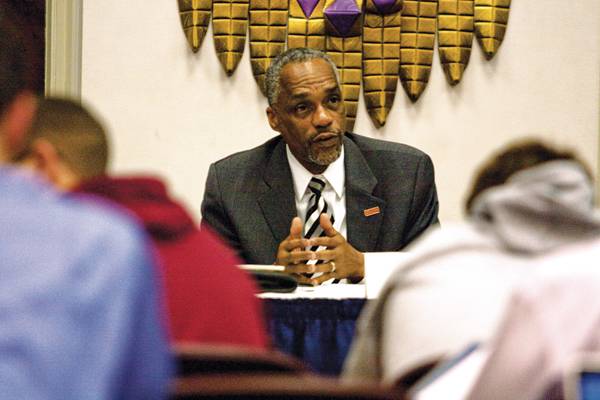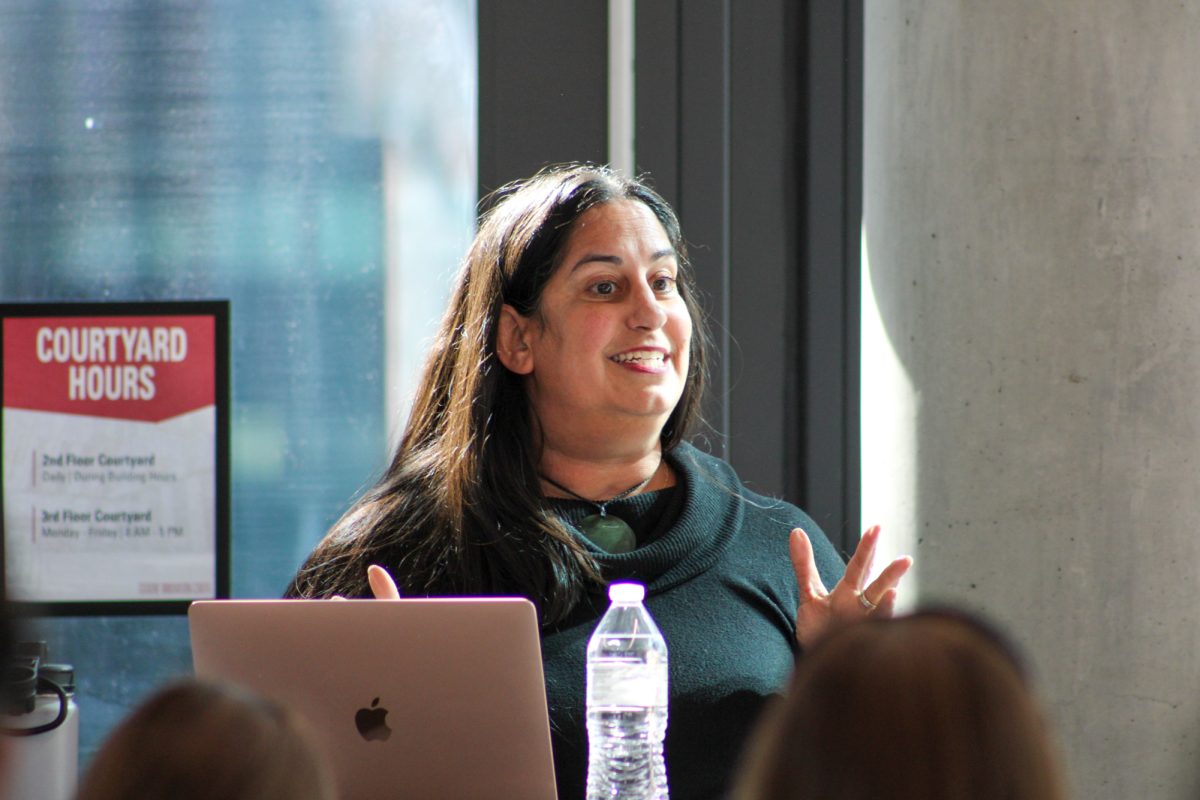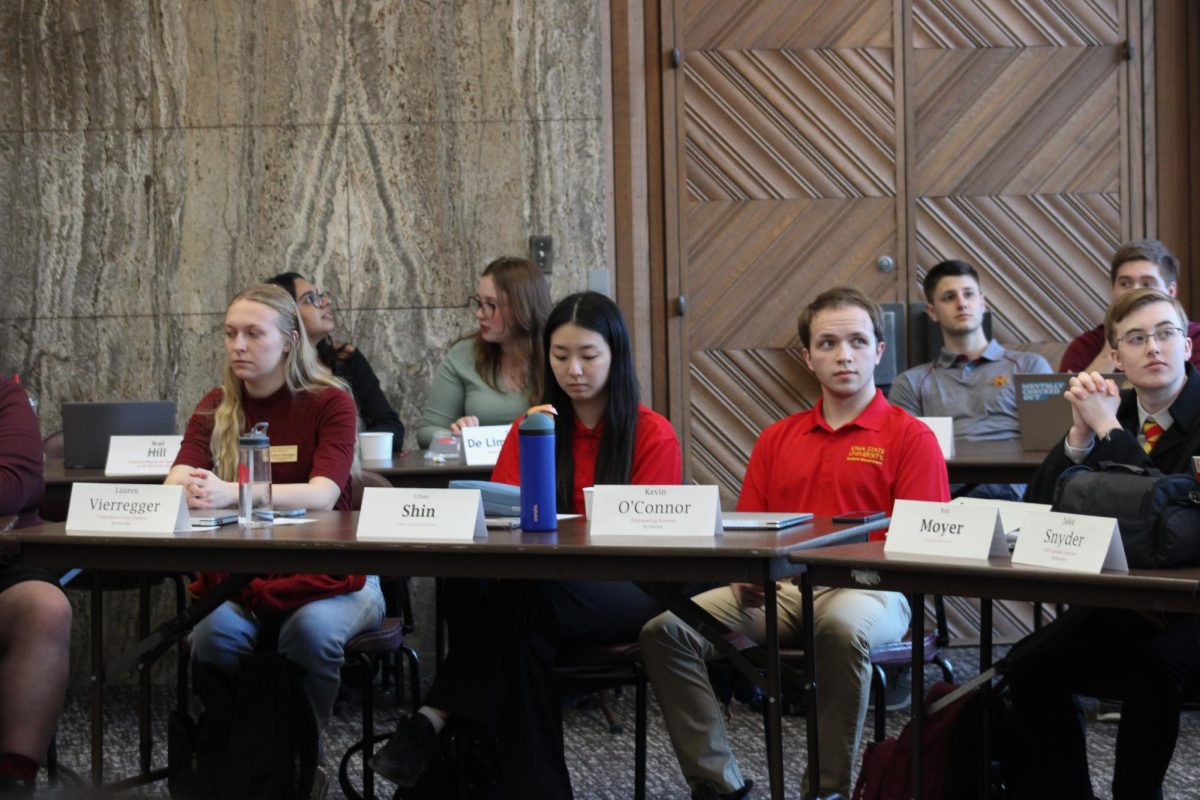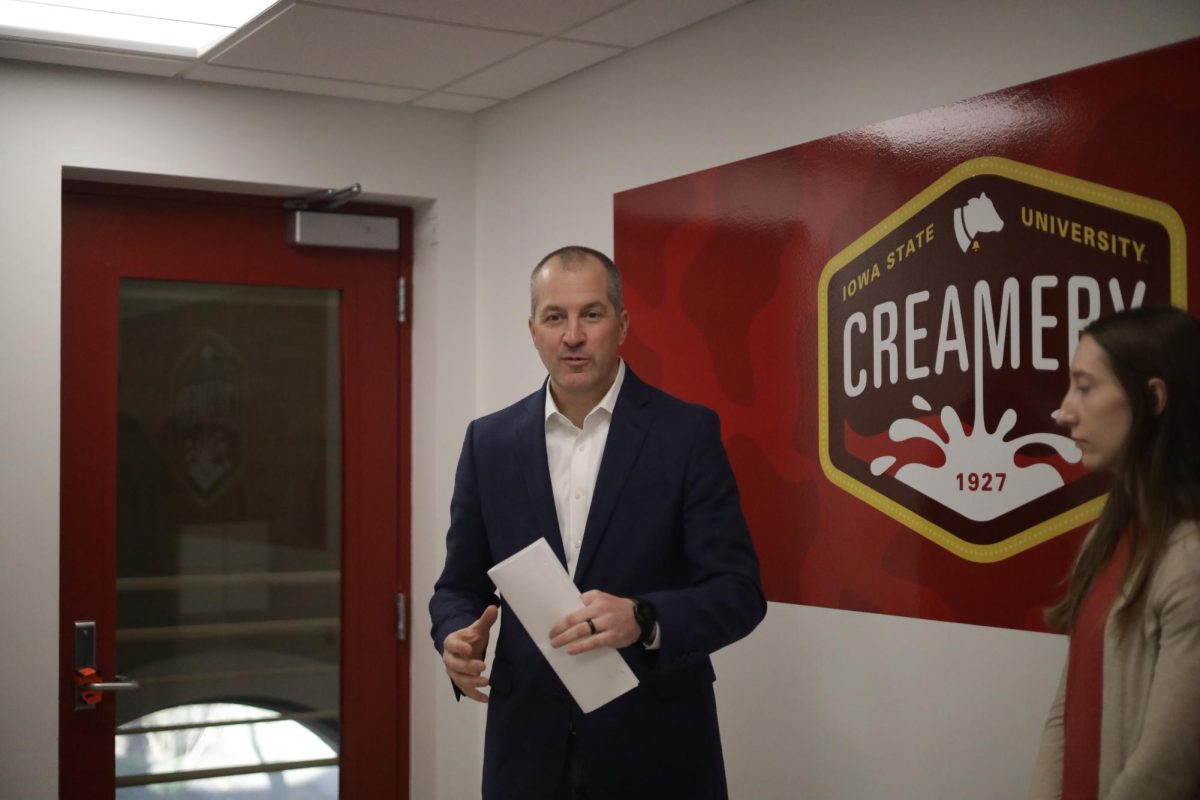Hill, GSB hear from students on budget cuts
October 26, 2009
Tom Hill, vice president of student affairs, requested students’ input on how to lessen the university’s financial burden as a result of this year’s budget cuts at an open forum Monday night.
About 10 students were present at the forum sponsored by the Government of the Student Body.
Board of Regents President David Miles’ directives for handling the revision were printed on the agenda including: temporary layoffs or furloughs, benefit revisions of a temporary or permanent nature, a tuition surcharge for the spring semester of 2010, temporary salary reductions, postponing non-essential deferred maintenance and repairs, refocusing efforts including potential program eliminations and permanent layoffs and selling non-essential assets to generate one-time funds.
Hill said the top three on this list were the favorites being considered as they are all actions that can be executed quickly.
The surcharge that is being recommended is $100 and will only be enacted for spring semester, Hill said.
All students would be expected to pay the surcharge, and the number of credits a student is taking will not affect the price of the surcharge.
One student expressed concern that students are having troubles graduating in four years and questioned what will happen if faculty get layoffs and programs get cut.
Jon Turk, GSB president and senior in political science, said Elizabeth Hoffman, executive vice president and provost, had assured him that no program would get cut while students are trying to finish their degree.
“It’s hard to close programs,” Turk said., “If we do, we may lose students, then we will lose their revenue.”
Both Turk and Hill talked of Iowa State possibly changing some four-year programs to three-year programs to save money.
Another student suggested that students should not pay an additional fee if they are taking more than 18 credits, a charge that some universities impose because students taking more credits use more faculty resources.
The university budget advisory committee hasn’t looked at that suggestion specifically, but they will need to confirm that suggestions such as those will help the university and not end up hurting it, Hill said.
Hill asked students what was the first thing they thought of when they heard of the 10 percent cut.
The answers ranged from worrying their lab research will be jeopardized, to programs being cut, to being betrayed by the state cutting that much money from public institutions.
One student worried he would not be able to afford graduate school in Iowa after completing his four-year degree.
Because almost 75 percent of the university’s budget is salaries and benefits, whenever the university makes deep cuts it affects faculty and staff, Hill said.
“The one thing we need to keep in mind is we’ve been here before, and we’ve made it back out before,” Hill said. “We can’t shoulder this much money on one program, or one group of people, we have to do this together.”







